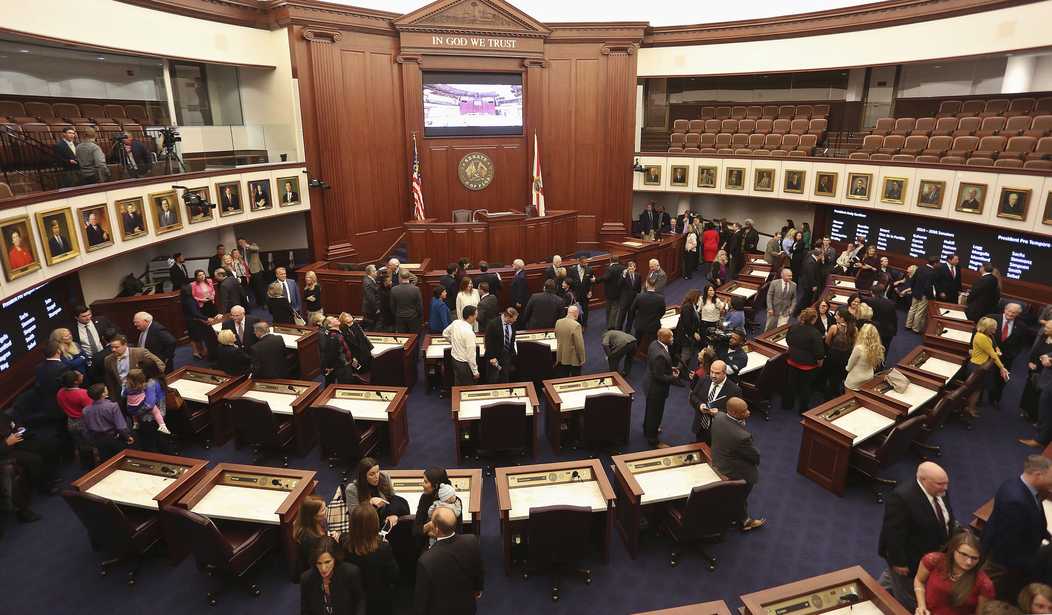Florida lawmakers are poised to pass a measure that would permit the death penalty for pedophiles who sexually assault children under 12 years old, a move that will likely trigger legal challenges and questions about its constitutionality.
The House will consider its version of the bill (HB 1297) on Thursday, while the Senate version (SB 1342) was cleared by the Rules Committee on Tuesday, paving the way for it to be presented to the full Senate.
The proposed legislation goes against decades of U.S. Supreme Court and Florida Supreme Court rulings that have prohibited the execution of defendants in rape and sexual abuse cases. According to a Senate staff analysis, the last time someone was put to death for a non-murder offense in the United States was in 1964.
In a rebuke of legal precedent, the House and Senate bills argue that a 1981 Florida Supreme Court case and a 2008 U.S. Supreme Court case were “wrongly decided,” with the Senate version declaring said cases represent an “egregious infringement of the states’ power to punish the most heinous of crimes.”
Jonathan Martin, a former prosecutor turned Republican state senator who is sponsoring the bill, said the legislation would allow for “constitutional boundaries by providing a sentencing procedure for those heinous crimes.”
“If an individual rapes an 11-year-old, a 10-year-old, a 2-year-old or a 5-year-old, they should be subject to the death penalty,” Martin said Tuesday after the Rules Committee approved the bill.
The legislation inevitably has drawn criticism, with Aaron Wyat of the Florida Association of Criminal Defense Lawyers pointing out that although people want “vengeance” against pedophiles, the death penalty would represent an overturning of decades of legal precedent.
“This bill invites a longer, costlier (legal) process for the victim and their family that they will endure,” Wayt said. “While this crime, anyone convicted of it is vile, heinous, the Constitution itself, the case law, the Supreme Court demands a maximum of life in prison. And so while it’s not the vengeance we all want, it’s the justice that the Constitution demands.”
Slate magazine, meanwhile, similarly argued that a “sentence of life without parole is a harsh and severe punishment,” even for those convicted of child abuse.
“Instead of spending millions of dollars to possibly change long-standing precedent, Florida’s resources are much better spent trying to protect our children from the abuse in the first place and ensuring survivors have access to mental health treatment and the proper support following the offense,” the magazine wrote in an editorial.
However, the bill has even drawn support from some Democrats. Senate Minority Leader Lauren Book, a Plantation Democrat who was sexually abused as a minor and has since founded the advocacy organization Lauren’s Kids, made the case that “there is no statute of limitations” for the victims of this kind of abuse.
“There’s no statute of limitations that a victim suffers. This is a life sentence that is handed down to young children,” Book said. “I still deal with the very real lasting effects of this crime. It never goes away,” she said, adding, “I don’t get a chance to make it stop.”
Under the proposed legislation, the death penalty may only be imposed if eight out of 12 jurors recommend it. While defendants may face a death sentence, judges will also have the opportunity to choose between the death penalty or life imprisonment. If fewer than eight jurors support capital punishment, then the punishment will be life imprisonment.
In murder cases, judges can only currently impose the death penalty if the jury’s recommendation is unanimous. However, lawmakers may alter this requirement to allow death sentences after the approval of eight of 12 jurors. The Senate has already passed this change, and the House will debate it on Thursday.
Republicans, who now hold supermajorities in both chambers, may have been encouraged by the appointment of more originalist judges in the Florida Supreme Court and the U.S. Supreme Court. In 2020, the Florida Supreme Court declared that unanimity in jury recommendations was not necessary for imposing the death penalty in murder cases, overturning the 2016 ruling that required unanimity.
Gov. Ron DeSantis is widely expected to sign off on this legislation, having previously signaled his support for expanding the death penalty to a wider range of crimes. “I believe the only appropriate punishment that would be commensurate to that would be capital,” he said of sex predators back in January. “Everyone feels that way when you see this.”














Join the conversation as a VIP Member